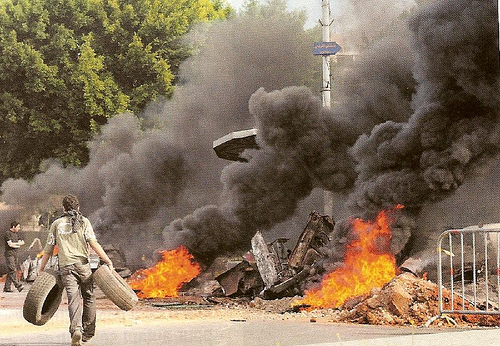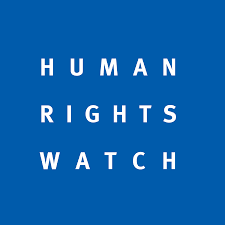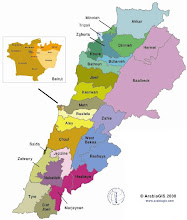 One of the most interesting electoral battle occurring outside the Christian areas is in Saida. The city of Saida is fascinating because although it is majority Sunna the dominant Sunni political organization, the Future Movement, does not have political dominance over the city, as yet.
One of the most interesting electoral battle occurring outside the Christian areas is in Saida. The city of Saida is fascinating because although it is majority Sunna the dominant Sunni political organization, the Future Movement, does not have political dominance over the city, as yet.For all the talk of a war between Sunni and Shia in Lebanon, this Sunni dominated city (84% of registered voters) currently has an incumbent MP Ossama Saad who is pro-Hezbollah and affiliated with the opposition coalition of March 8. Thus, Saida may illustrate the true nature of Lebanese politics which is less directly concerned with confession but more to do with networks of patronage and family connections/history in a given area that then becomes intertwined with confession. Saida also represents a district where a class struggle becomes more directly involved in the electoral process. With Ossama Saad making himself out to be a man of the people and emphasising direct contact with the people, while the Future Movement candidates Bahia Hariri and Siniora by their prominent political national roles obviously cannot offer this.
Ossama Saad, who inherited his parlimentary seat from his brother who died in 2002, has never faced an election before, as in 2005 the two Sunni seats were allocated to Saad and Bahia Hariri in an agreement. A lot has changed in Lebanon since the last proper election in Saida in 2000 and Future, along with many anaylsts, expect to win both Sunni seats in Saida. However, Ossama Saad does have significant support in Saida especially among the trade unions and it will be a tightly run contest. Saad is not at all pleased that Fouad Siniora is challenging his seat in this election and has made clear that he will not make it an easy contest. The possibility of violence in this district has been raised by analysts.
Saida in detail
Currently, the candidates running in this district are:
Future Movement (March 14)
Bahia Hariri, the sister of assassinated former PM Rafik Hariri
Fouad Siniora, the current Prime Minister and former confidant of Rafik Hariri
The Popular Nasserite Organisation (PNO) (March 8 affiliated)
Ossama Saad, brother of deceased former MP Mostapha Saad and son of PNO founder Maarouf Saad who was assassinated at the beginning of the civil war.
The voters in Saida are split between the Future Movement, the Popular Nasserite Organization (PNO) and Jamaa Islamiya. Saida was previously part of a larger district but now has its own district with two Sunni seats agreed at Doha. The historical particularities of Saida have meant the political land
 scape has been divided between the political and family heirs of assassinated former PM Rafik Hariri (Future Movement) and Mostapha Saad (PNO) (both pictured left).
scape has been divided between the political and family heirs of assassinated former PM Rafik Hariri (Future Movement) and Mostapha Saad (PNO) (both pictured left).Future have been involved in intense negotiations with Jaama Islamiya, with reports stating that the Prime Ministers office was used for the negotiations that could lead to complaints to the Constitutional Council post-election. The result of these negoitations was a seat in Beirut District IIIwas given to the Jaama Islamiya by Future to ensure that Jaama tell their supporters in Saida to vote for Future. The giving away of one seat in Beirut III by Future Movement to Jaama Islamiya can be seen as the Movement ensuring that those in the Sunni community sympathetic to Hezbollah and
 March 8 are marginalized, while other opponents are given more room often at the expense of their own supporters. This has also occured in Tripoli and has been quite a painful process for the Future Movement.
March 8 are marginalized, while other opponents are given more room often at the expense of their own supporters. This has also occured in Tripoli and has been quite a painful process for the Future Movement.Mostapha Saad (pictured on the right) has made clear his anger that Future has decided to field two candidates for this district and not, as has been traditionally done, leave one seat empty. A media storm was whipped up when Siniora announced his candidacy and Ossama Saad has ensured the pressure continues. Saad has warned of a fierce conflict during and after the elections.
While, the risk of violence is present in this district the voters of Saida will for the first time have a chance to express what kind of identity the city will have. Will it be a Future Movement city that would confirm the party as the representatives of the Sunnis in the South and position the city as a March 14 heartland? Or will the voters of Saida maintain the city as neutral with a candidate Saad who is sympathetic to Hezbollah and affiliated with March 8 balanced by Bahia Hariri?





























